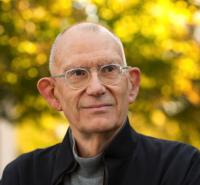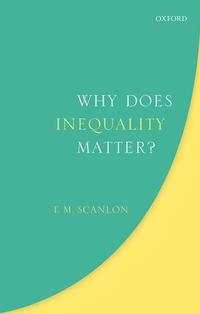2013 Lectures: Tim Scanlon
Professor Tim Scanlon

We are very grateful to Professor Tim Scanlon (Alford Professor of Natural Religion, Moral Philosophy, and Civil Polity, Harvard University) for delivering the 2013 public Uehiro Lecture Series in December 2013. The series was entitled "When Does Equality Matter?"
Professor Scanlon received his B.A. from Princeton and his Ph.D. from Harvard. In between, he studied for a year at Oxford as a Fulbright Fellow. He taught for many years at Princeton before taking up a position at Harvard in 1984. His dissertation and some of his first papers were in mathematical logic, where his main concern was in proof theory, but he soon made his name in ethics and political philosophy, where he developed a version of contractualism in the line of John Rawls, Immanuel Kant, and Jean-Jacques Rousseau. Professor Scanlon has also published important work on freedom of speech, equality, tolerance, foundations of contract law, human rights, conceptions of welfare, theories of justice, as well as on foundational questions in moral theory. His books include What We Owe to Each Other (Harvard University Press, 1998) and The Difficulty of Tolerance (Cambridge University Press, 2003). Other recent publications include Moral Dimensions: Permissibility, Meaning, Blame, published by Harvard University Press in September 2008.
Book

Why Does Inequality Matter?
T. M. Scanlon
- A compelling investigation of one of the great problems of the modern world
- Ground-breaking work by a pre-eminent philosopher
- Lucidly written, so as to attract readers from a wide range of backgrounds
Inequality is widely regarded as morally objectionable: T. M. Scanlon investigates why it matters to us. Demands for greater equality can seem puzzling, because it can be unclear what reason people have for objecting to the difference between what they have and what others have, as opposed simply to wanting to be better off. This book examines six such reasons. Inequality can be objectionable because it arises from a failure of some agent to give equal concern to the interests of different parties to whom it is obligated to provide some good. It can be objectionable because it involves or gives rise to objectionable inequalities in status. It can be objectionable because it gives the rich unacceptable forms of control over the lives of those who have less. It can be objectionable because it interferes with the procedural fairness of economic institutions, or because it deprives some people of substantive opportunity to take part in those institutions. Inequality can be objectionable because it interferes with the fairness of political institutions. Finally, inequality in wealth and income can be objectionable because it is unfair: the institutional mechanisms that produce it cannot be justified in the relevant way. Scanlon's aims is to provide a moral anatomy of these six reasons, and the ideas of equality that they involve. He also examines objections to the pursuit of equality on the ground that it involves objectionable interference with individual liberty, and argues that ideas of desert do not provide a basis either for justifying significant economic inequality or for objecting to it.
"[A] densely packed and succinctly written book which is analytical political philosophy at its best: clear, rigorous, and admirably sharp. It's also pitched at just the right level of abstraction; no one who reads it could fail to appreciate how Scanlon is troubled by the sheer extent of inequality in the United States, and there are suggestions of policy positions, for example dispersal of media ownership. ... anyone remotely interested in egalitarianism will find much to reward them in this outstanding book." - Jonathan Seglow, Ethical Theory and Moral Practice



